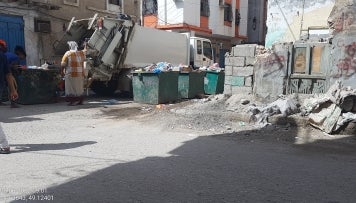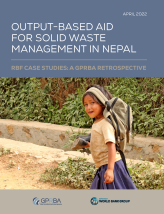Technical Assistance
West Bank and Gaza: Developing a Roadmap for the SWM Sector
Technical Assistance
Yemen: Solid Waste Management and Gender Assessments
October 11, 2023 |Feature Stories
Enhancing Solid Waste Management in Yemen
November 23, 2020 |Press releases
Nearly 1 Million to Benefit from Upgraded Solid Waste Management Facilities in Gaza
January 30, 2018 |Feature Stories
Pay for Success and Cleaner Cities in Nepal
Output-Based Aid for Solid Waste Management in Nepal
This case study is part of a series to highlight project components that have enabled GPRBA to successfully deploy resu

City-level Assessment and Draft Service Improvement Plan for Solid Waste Management For Itahari Sub-Metropolitan City
By 2050, it is estimated that nearly half the world’s population will reside in cities.



